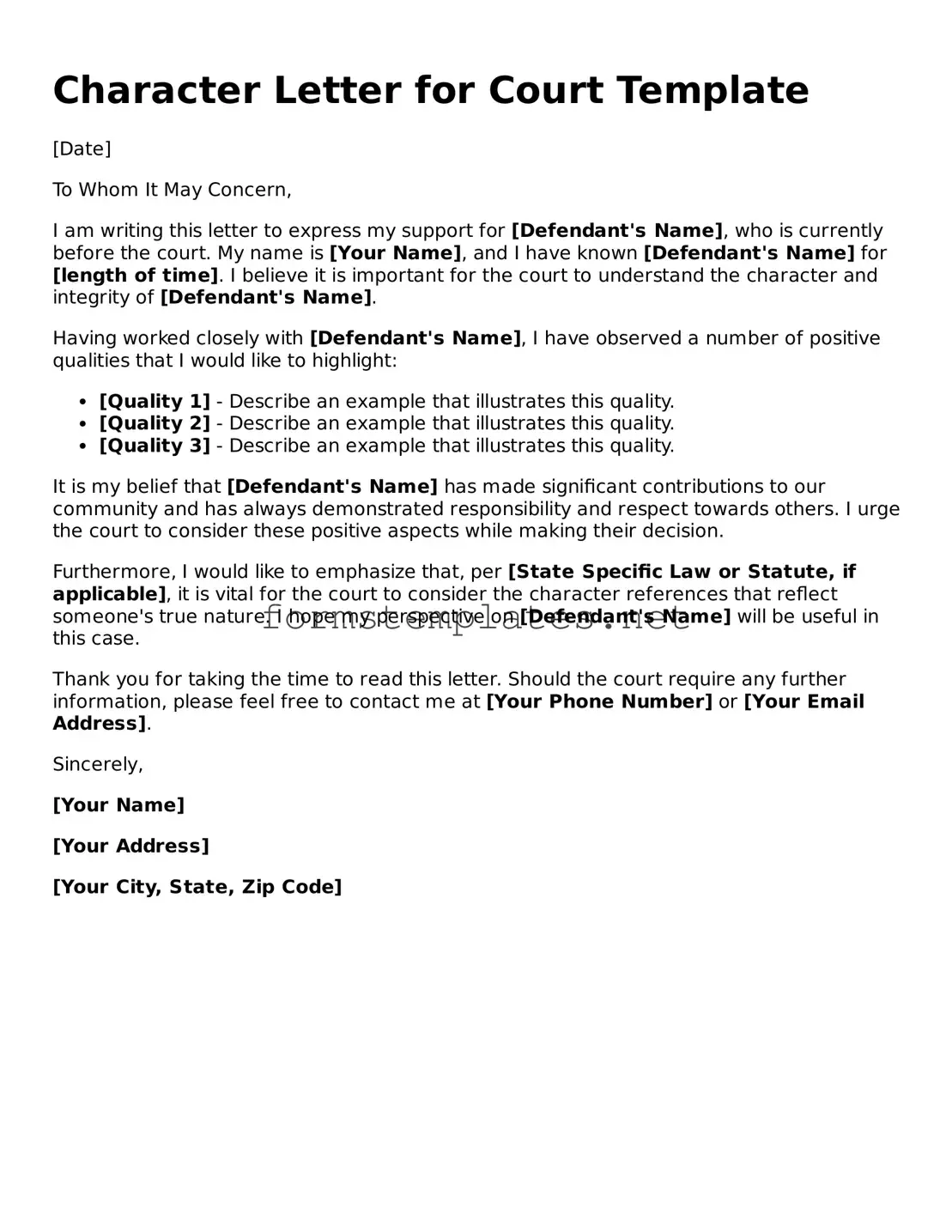Attorney-Verified Character Letter for Court Form
The Character Letter for Court form is a document that individuals can submit to express their personal views about a defendant's character. This letter serves to provide the court with insight into the individual’s life, highlighting positive traits and contributions to the community. It can play a significant role in influencing the court's decision during sentencing or other legal proceedings.
Open Editor Now

Attorney-Verified Character Letter for Court Form
Open Editor Now

Open Editor Now
or
⇓ PDF Form
Your form still needs attention
Finalize Character Letter for Court online — simple edits, saving, and download.